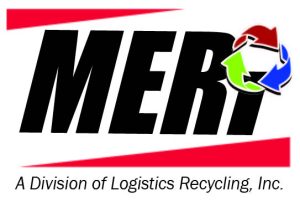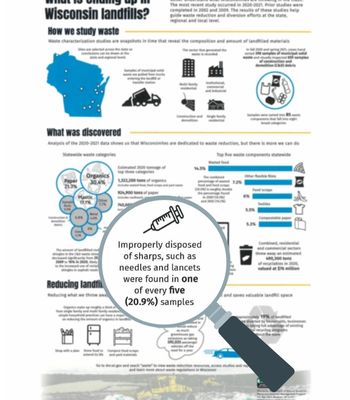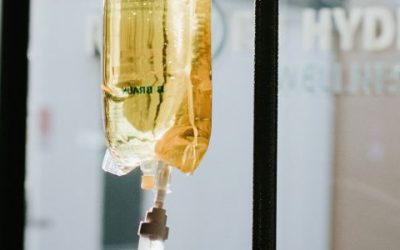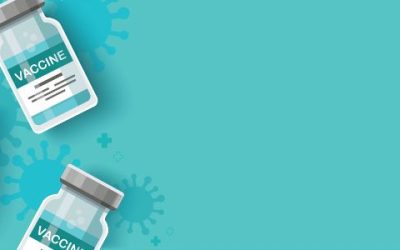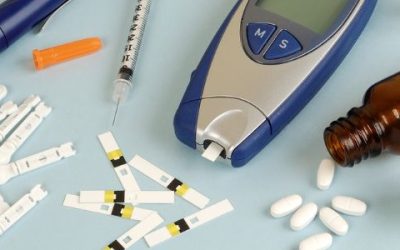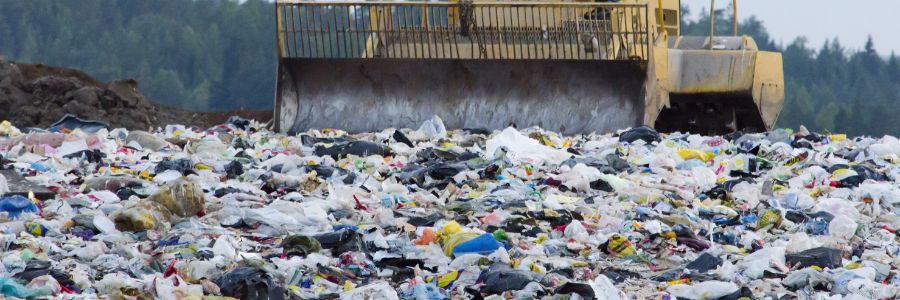
Nearly 20.9% of Wisconsin landfill samples contain improperly disposed sharps. This alarming fact comes from a recent statewide characterization study commissioned by the Wisconsin DNR to find out what is in our landfills. Sharps, including needles and lancets, appeared in one of every five samples.
Understanding the Danger of Improper Sharps Disposal
There should be cause for concern when this percentage of sharps ends up in our waste stream. For sanitation workers, improper sharps disposal can cause more than a painful prick. It can mean serious infection from a contaminated needle. In addition, when flushed down the toilet, sharps can cause plumbing issues and equipment problems in wastewater treatment plants. Understanding the dangers of irresponsible sharps management is essential to protecting humans and animals from potential health risks.
What’s a Sharp?
A sharp is any object that can pierce the skin. Once you use a sharp, it has the potential to contaminate anybody who pricks themselves with it. Each of the following items is a sharp:
- Needles – hollow needles for injecting drugs (medication) under the skin
- Syringes – objects that inject medicine or draw fluid from the body
- Lancets (“fingerstick” devices) – instruments with a short blade that draws blood for testing
- Autoinjectors – syringes that come with fluid medication such as epinephrine and insulin pens
- Infusion sets – tubing systems with a needle to inject drugs into the body
- Connection needles/sets – needles that connect to a tube to transfer fluids in and out of the body, often used in home hemodialysis
How Should Sharps Be Disposed of?
Never put sharps such as syringes, lancets, or pen needles in the trash. Used and unused sharps must be disposed of in proper containers to protect others from injury. Additionally, never flush these materials down the toilet.
Do's and Don'ts
- Do discard all sharps in approved, rigid containers
- Do use a mail-back program like a medical waste recovery system (MWRS) kit for safe and easy collection and disposal
- Do consult safeneedledisposal.org or look for approved drop-off sites, like designated pharmacies or police stations that collect sharps
- Don’t throw loose needles into the trash
- Don’t place sharps in a recycling bin – they are not recyclable
- Don’t flush sharps down the toilet
- Don’t bend, break, remove or recap needles used by another person
##
